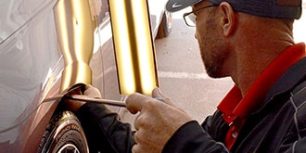The time has come to get a new set of wheels. The word “new,” however, is up to interpretation.
As a consumer, you have several options. You can purchase a new vehicle outright, you can purchase a “new to you” vehicle, or you can lease a new vehicle. In this article, we’ll be focused on actually purchasing a car.
Is it better to buy a new car or a used car?
It is essential to realize that every situation is different, and a new car doesn’t make sense for everyone. Neither option is genuinely better than the other on a universal level.
There is a sense of satisfaction that comes with driving a car fresh from the factory with zero miles and that intoxicating new car smell, but a used vehicle, particularly one that has been certified or still has life left on its factory warranty, can be just as reliable and more affordable than a new car.
Advantages of Buying a New Car
Brand New Vehicle
This is one of the most significant advantages of buying a new car. There is certainly an allure to new vehicles. You know 100% for sure that this car has never been in an accident or had any mechanical issues. You can also be sure it has no dings or dents.
Plus, it has very few, if any, miles on the odometer. With a new car, the possibilities are endless. It’s a fresh start.
Newer Features
Modern cars are increasingly equipped with advanced driver assistance systems (ADAS), electric powertrains, and improved connectivity features (like 5G and enhanced infotainment systems).
Many of these features also find their way into used car lots, especially in vehicles only a year or two old.
Customization Options
Customization remains a crucial advantage of purchasing a new car. Modern vehicles offer a wide range of options that allow buyers to tailor their cars to their specific tastes and needs. The possibilities are vast, from aesthetic choices like exterior colors and interior finishes to functional features such as engine types and infotainment systems.
Today’s car buyers can select from various technological features that enhance the driving experience and vehicle safety. Options like advanced driver-assistance systems (ADAS), including adaptive cruise control, lane-keeping assist, and automatic emergency braking, are increasingly available. Entertainment and connectivity features like state-of-the-art sound systems, integrated smartphone interfaces, and advanced navigation systems are widespread.
Eco-friendly options have also gained prominence. Buyers can now choose from various hybrid or electric powertrains and features that reduce environmental impact, such as eco-efficient air conditioning systems and sustainable interior materials.
The ability to customize extends beyond the factory options. Many manufacturers offer additional accessory packages and dealer-installed extras, allowing further personalization after the initial purchase. These might include aesthetic enhancements, utility add-ons like roof racks, or performance upgrades.
Warranty Coverage and Advanced Safety Features
In 2024, the warranty coverage landscape for new and used vehicles has seen significant advancements. For new cars, manufacturers now offer extended factory warranties, primarily electric and hybrid vehicles, reflecting confidence in their durability and performance. These new car warranties often cover sophisticated safety and driver-assistance systems, ensuring they remain functional over time. Particularly noteworthy are the battery warranties for electric vehicles, which can extend up to 8-10 years, reassuring buyers about the battery’s longevity.
Certified Pre-Owned (CPO) programs have become increasingly popular on the used car front. These programs offer comprehensive warranty coverage, similar to new cars, and include advanced tech features. Additionally, the market for third-party extended warranties has expanded, providing more options for used car buyers to extend their coverage. This is particularly beneficial for high-tech components that might not be covered under standard used car warranties.
Another positive development is the increasing prevalence of transferable warranties. When a used car is still under its original warranty, this coverage can often be transferred to the new owner, adding considerable value and peace of mind to the purchase.
Easier to Buy
In 2024, buying a new car has become even more streamlined and customer-friendly. While the traditional experience of visiting a dealership and negotiating a price still exists, the digital transformation in the auto industry has made significant strides. Online platforms now offer virtual showrooms, allowing buyers to explore and customize their new car from home comfort. These platforms often include detailed 3D views, virtual test drives, and comprehensive information about each model.
The pricing process for new cars has become more transparent. Many manufacturers and dealerships now provide clear pricing information online, reducing the need for intense negotiations. Customers can find attractive deals and discounts during promotional periods, making purchasing a new car more straightforward.
Another advancement is the increasing prevalence of online financing options. Buyers can now secure financing digitally, with quick approvals and competitive rates, further simplifying the purchase process. Trade-in valuations and offers can also be handled online, giving buyers a clearer understanding of their financial options before stepping into a dealership.
Advantages of Buying a Used Car
Lower Cost
The financial advantage of buying a used car remains a significant consideration for most buyers. While the market dynamics have evolved, with used car prices fluctuating due to various economic factors, they are generally more affordable than their new counterparts. This cost-effectiveness extends beyond the sticker price, offering savings in several other aspects.
Depreciation remains a crucial factor. A new car still loses a significant portion of its value in the initial years, making a used car an attractive option for those looking to maximize their investment. Buyers can often find relatively recent models with advanced features, similar to new cars, but at a substantially lower cost. This is especially true for models with a high depreciation rate, providing an opportunity to own a higher-end vehicle at a more accessible price point.
Lower Insurance Rates
When you buy used, you’re not only saving money on the purchase price of a new vehicle. Insurance rates are historically lower on used vehicles and continue to decline as a vehicle ages. Before deciding on a vehicle, get insurance quotes on your desired new and used vehicle options. Consider these rates during your decision-making process.
Less Depreciation
The damage has already been done. Most of a car’s depreciation occurs in the first year of ownership. You can rest assured that your used vehicle purchase doesn’t have as much room left to depreciate, and you can get closer to what you paid if you eventually re-sell it.
Improved Technology for Finding Used Cars
The technology for finding and evaluating used cars has seen remarkable advancements, making the process more efficient and transparent. The emergence and continuous development of sophisticated online platforms have revolutionized the used car buying experience.
These platforms provide detailed vehicle listings, often featuring high-resolution images and comprehensive video tours, allowing potential buyers to closely inspect vehicles virtually. Advanced search tools and personalized recommendations powered by artificial intelligence make it easier for buyers to find cars that match their specific criteria and preferences.
Access to detailed vehicle history reports has become a standard part of the used car buying process. Services like CarFax and AutoCheck offer insights into a car’s maintenance history, accident records, and previous ownership, helping buyers make informed decisions.
Online valuation tools, such as Kelley Blue Book, use extensive market data to estimate a used car’s value accurately. This ensures that buyers have the information to negotiate fair prices and make cost-effective choices.
Less Pressure
Life happens. Getting a dent on a brand-new car is particularly deflating, as you have more of a desire to keep it in peak condition. If you purchase a used car, there is less mental emphasis on being perfect. Chances are, this isn’t its first dent. Upkeep is still essential to owning a vehicle, whether it’s new or used, but maintaining perfection isn’t your top priority with a used vehicle.
Is It Better to Buy New vs Used? That’s Your Call!
In the end, there are pros and cons to buying a new car versus a used car. Buying new or used is a matter of personal preference, desires, and financial capabilities. There isn’t a right or wrong answer to your quest for a new set of wheels. Did you recently purchase a vehicle? Protect it and keep it in top condition with our interior repair services and exterior reconditioning services. For more information, connect with the Dent Wizard experts!





